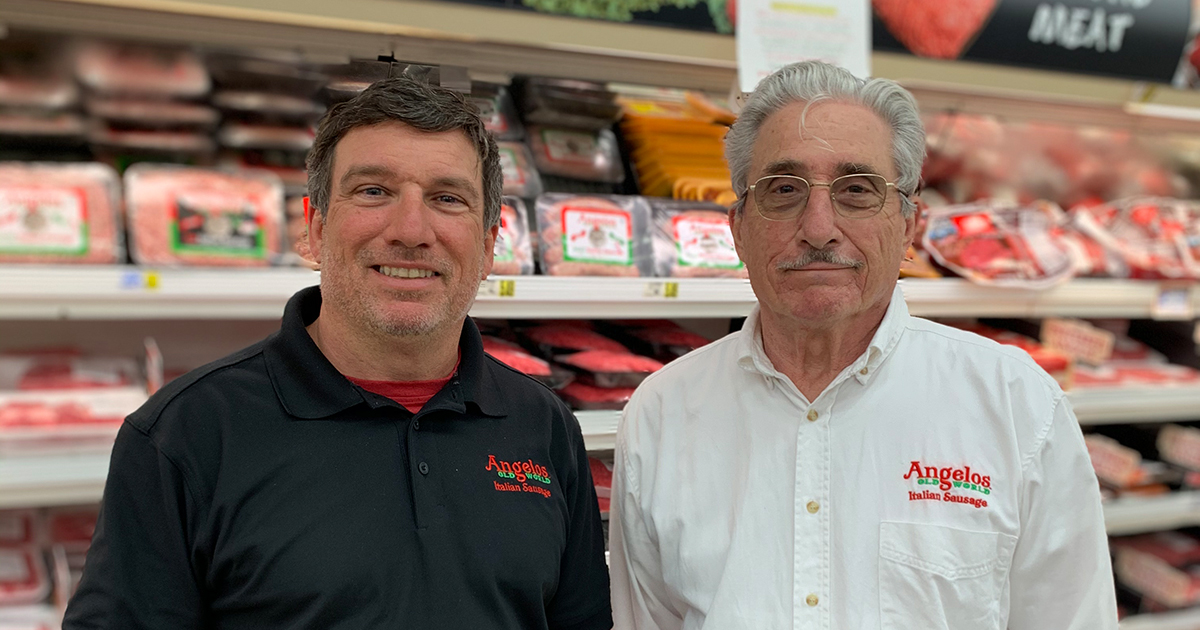In March, broadcast journalists from Virginia and West Virginia were recognized when the Virginias Associated Press Broadcasters met to present awards for notable stories produced in 2023.
This week, we listen back to some of our award-winning stories.
In This Episode:
- How Angelo’s Old World Italian Sausage Gets Made
- Make Way For The Mushroom Hunters
- Winter Wassailing In Asheville
- Season Of The Witch
How Angelo’s Old World Italian Sausage Gets Made
Photo Credit: Zack Harold/West Virginia Public Broadcasting
Zack Harold is the unofficial foodie for Folkways. Last summer, he took us to see how the sausage gets made with Angelo’s Old World Italian Sausage. The recipe originated in the Calabria region of Italy, but it’s made in West Virginia.
Make Way For The Mushroom Hunters
Photo Credit: Wendy Welch/West Virginia Public Broadcasting
Gathering foods like ramps, sassafras or blackberries from the forest has always been a part of Appalachian culture. In recent years, mushroom hunting has been having a moment.
Folkways Reporter Wendy Welch spent time with mushroom hunters in Virginia and West Virginia and brought us the story.
Winter Wassailing In Asheville
Photo Credit: Rebecca Williams/West Virginia Public Broadcasting
Not many folks are thinking about winter holiday traditions this time of year. But back before Christmas, Folkways Reporter Rebecca Williams explored the old English tradition of wassailing in Asheville, North Carolina. A group of friends there got into this old singing tradition as a way to connect to their roots. Williams reported.
Season Of The Witch
Photo Credit: Llewellyn Worldwide
In Appalachia, witchcraft goes way back. Wise women still practice herbology or trace the patterns of the moon. H. Byron Ballard is a practicing witch in Asheville, North Carolina. She’s also the author of several books, including Small Magics: Practical Secrets from an Appalachian Village Witch. Last fall, she spoke with producer Bill Lynch about her way of life – and quizzed Bill on cryptids.
We also want to congratulate WVPB reporters and Inside Appalachia contributors Emily Rice and Breana Heaney, news director Eric Douglas and Us & Them host Trey Kay. Each of them won awards from the Virginias Associated Press Broadcasters.
Photo Credit: Eric Douglas/West Virginia Public Broadcasting
——
Our theme music is by Matt Jackfert. Other music this week was provided by Christian Lopez, Dave and Tim Bing, John Inghram, Marissa Anderson, Frank George and Hank Williams Jr.
Bill Lynch is our producer. Zander Aloi is our associate producer. Our executive producer is Eric Douglas. Kelley Libby is our editor. Our audio mixer is Patrick Stephens. We had help this week from Folkways editors Chris Julin and Nicole Musgrave.
You can send us an email at InsideAppalachia@wvpublic.org.
You can find us on Instagram, Threads and Twitter @InAppalachia. Or here on Facebook.
Sign-up for the Inside Appalachia Newsletter!
Inside Appalachia is a production of West Virginia Public Broadcasting.
